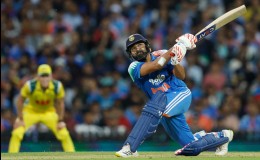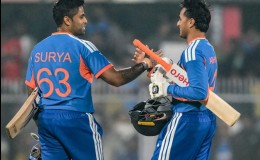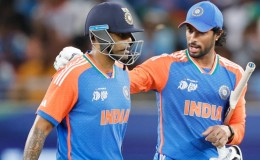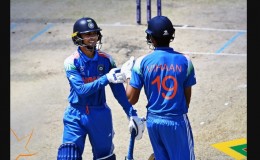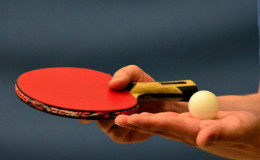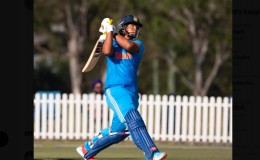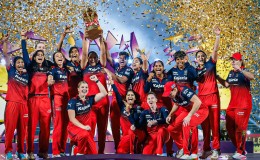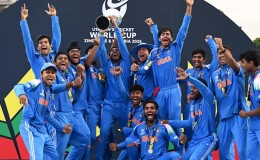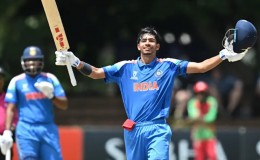IOC President Thomas Bach and UN Secretary-General Ban Ki-moon review increased collaboration after signing top-level agreement between the two organisations.
International Olympic Committee (IOC) President Thomas Bach and United Nations (UN) Secretary-General Ban Ki-moon met today at the IOC headquarters in Lausanne, less than two months after having signed a historic agreement in New York aimed at strengthening collaboration between the two organisations at the highest level.
During a one-hour bilateral meeting, the two leaders discussed a number of issues and the joint action being taken by the two organisations on various concrete projects.
The two leaders reviewed the situation in South Sudan, where war has forced millions of people from their homes, pushing them to the brink of famine. The IOC President informed the UN Secretary-General about a recent joint meeting he held between representatives of the Sudanese National Olympic Committee (NOC) and members of the South Sudanese sporting movement. Following the recent signing of the MoU between the IOC and the UN, the South Sudanese said they were able to contact local representatives on the ground in South Sudan to work on potential projects. In parallel, the IOC has started to work with the NOC of Sudan, International Federations and training centres in the region to identify and assist athletes with the potential to qualify for the Rio 2016 Olympic Games.
The meeting also covered a possible joint initiative in the Central African Republic. The project, initiated by the local NOC and supported by the IOC, would involve more than 1,800 athletes and sports representatives promoting sport as a tool for peace. The initiative would also encourage political leaders to work towards finding peaceful solutions to conflicts. Concrete activities would include peace “caravans”, sports competitions between neighbourhoods and regions playing for “fair play and peace” trophies, as well as conferences and debates. Being very active in the country, the UN proposed that a feasibility study be conducted with regard to the implementation of the project.
The IOC President proposed IOC-UN collaboration on an initiative supporting athletes living in refugee camps. The two organisations have years of experience of working together in refugee camps in countries plagued by violence and war. Using the UN’s extensive networks in such camps, promising athletes would be identified, and, with the help of the IOC and Olympic Solidarity, would receive training and assistance.
President Bach underscored the IOC’s commitment to the UN’s Sustainable Development Goals (SDGs). The IOC recognises that the post-2015 development agenda is a historic opportunity to establish a global framework for sustainable development, and encourages UN Member States to consider sport as a cost-effective and valuable tool for achieving the SDGs.
The leaders also discussed the upcoming visit of IOC Honorary President Jacques Rogge to Jordan to meet Syrian refugees. Rogge was recently appointed as Special Envoy of the Secretary-General for Youth Refugees and Sport. In this role, he will support the UN Secretary-General in advancing peace, development and an inclusive society through sport.
Details of the trip are still to be finalised, but the visit will be the occasion to assess on the ground the benefits sport-based initiatives can bring to young refugees and local communities.
The IOC President also briefed the UN Secretary-General on the progress being made on the Olympic Agenda 2020, a strategic roadmap for the future of the Olympic Movement. Fourteen Working Groups are meeting between 16 and 24 June to work on the thousands of contributions the IOC has received. Each group is made up of key stakeholders of the Olympic Movement and outside experts, including the UN Secretary-General’s Special Adviser on Sport for Development and Peace, Wilfried Lemke.
The meeting ended with an update on the inauguration of the new IOC Sport for Hope Centre in Haiti, which is due to take place in July and be attended by both President Bach and UN Secretary-General Ban.
During a short media encounter that followed the meeting, President Bach said: “We believe that sport can be a strong driver for social change, and today’s visit by the UN Secretary-General strengthens once again our determination to use the values of sport to help build a better world. Whether it is with youth, refugees or wherever people are in need we are ready to serve. Sport can play a role, and we want to be at your side.”
Secretary-General Ban said: “The United Nations and the International Olympic Committee are committed to work together to harness the power of sport to promote development, advance human rights and build peace.”
After touring the IOC headquarters, the IOC President and UN Secretary-General visited the Olympic Museum. There the two leaders stopped for a photo in front of the original Olympic flag, which turned 100 years old today. One of the most recognisable symbols of the Olympic Games, the flag was created for the Olympic Jubilee Congress in 1914 in Paris, in celebration of the 20th anniversary of the Olympic Movement.


